In terms of design, it is one of the most striking greenhouses of recent years and in terms of technology, it is a masterpiece: the greenhouse near Shanghai where the FoodVentures team has been growing vegetables since March last year. Dirk Aleven, founder and CEO of FoodVentures, talks about the first months of cultivation in Shanghai. "It shows what the future of growing is going to be for China and the Netherlands."
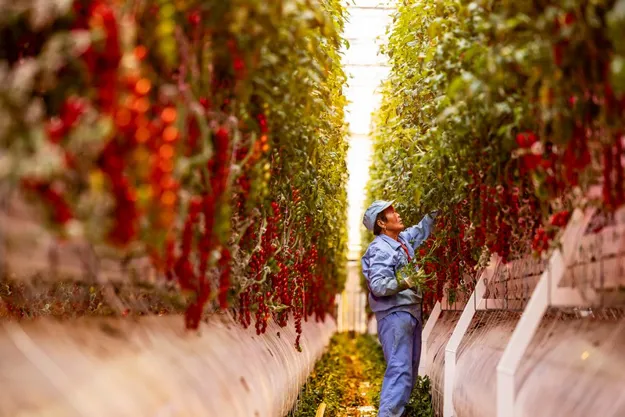
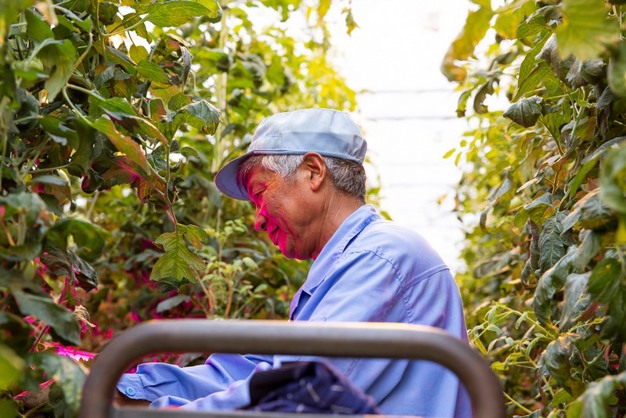
Independent team in China
Semi-closed, with diffused glass on top. Equipped with top lighting, LED lamps, high-tech climate and irrigation control, and a cooling system. It is a fine piece of technology that was realized last year in Shanghai. "The choice for the technology was made by Evergrande, the owner of the greenhouse", says Dirk. "They wanted to make the project an example for the region: to show what is possible in horticulture." FoodVentures, the company of which Dirk is CEO, is renting the greenhouse for a period of 25 years. With their knowledge and experience in setting up horticultural projects in new markets, they are responsible for the cultivation and marketing of the production.
"Our team in China operates as an independent team, supported by us both locally and from the Netherlands. Our growers also live locally: for example, we work with a Dutch-Chinese site manager in Shanghai," says Dirk. Challenges in cultivation are followed closely from the Netherlands. At the moment, for instance, the main challenge is the high energy price. "Energy is expensive in China and has recently become even more so. We now pay 50% more for gas than last year, and the prices keep rising." And that is when all the technical possibilities and FoodVentures' years of knowledge come into play: optimization with the operating margins in mind. "What has been good for us so far in Shanghai is that we have a lot of light in the winter. In the summer, the costs of cooling were not too bad either," continues Dirk. "Together with Dutch start-ups, we are looking at new possibilities for heat storage or solar energy. Then we can further reduce our energy consumption."
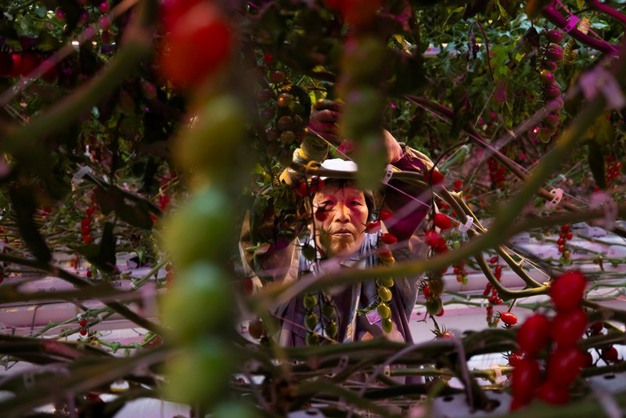
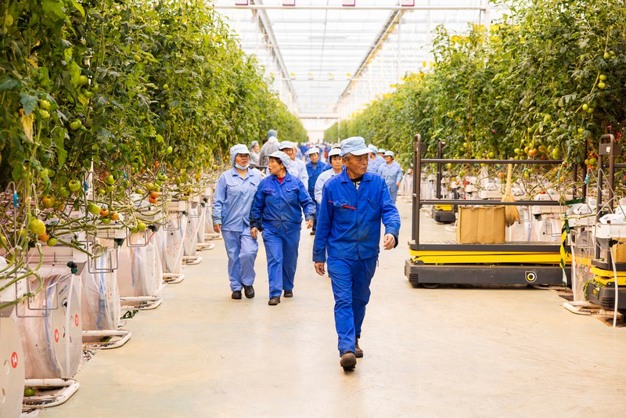
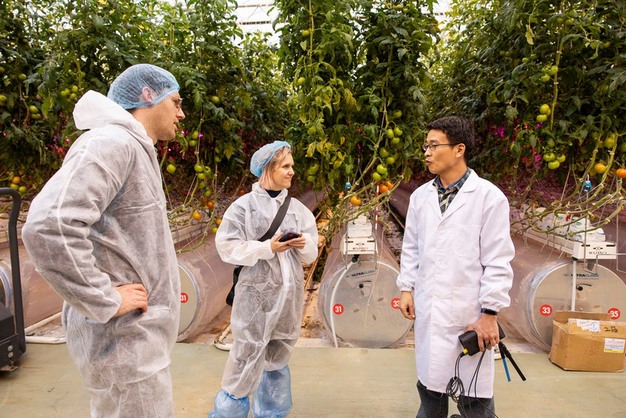
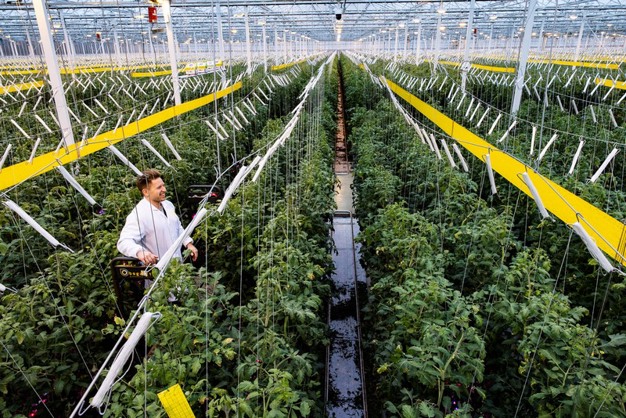
In full production
At the moment, the company is in full production. That is, of the five greenhouses, one is currently running - the others will be commissioned in the coming years, as soon as Evergrande completes construction. "This greenhouse of 3.5 hectares, is divided into two pieces," Dirk shows. "Last year, as a trial, we started growing different varieties of tomato and cucumber in the greenhouse to see how the local market reacts to them. From these trials, we have picked two successful varieties. Since last summer, we have been producing beef and cherry tomatoes."
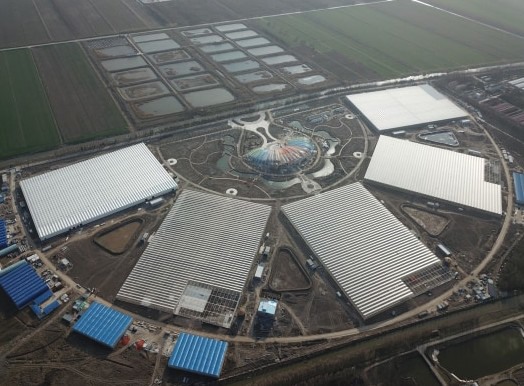
The company is thus innovating not only on a technical level but also in the marketing of its products. "The market in Shanghai is different from what we are used to. Normally, we work with FoodVentures in markets where there is a shortage of vegetables. There is no shortage in China, on the contrary. There is a demand for safe and sustainable vegetables." He explains that vegetables in China are traditionally prepared and consumed hot. "Our beef tomato is used in both hot and cold dishes. Because a cherry tomato is eaten raw, as a snack, consumers have become more aware of the importance of food safety. For us, this is both a cultivation challenge and a communication challenge: if our product is sold anonymously in the fresh market, it is mainly about the price. In the retail sector, added value is awarded to food-safe cultivated products. It is our challenge to respond to this. One way of doing this is through promotions in supermarkets and cheerful, colourful packaging. "These show that we are local, Chinese, but with Dutch influences." Now that the products are in retail, they get a lot of feedback from their customers.
Also notable: the packaging is plastic-free. According to Dirk, Chinese consumers are very concerned about using less plastic. An additional challenge is that there are many online sales and distribution via scooters. "This is logistically difficult. Fortunately, we have good cooperation with retailers, who also want to get rid of plastic." For him, both the sales channel and the packaging are examples of what the future will look like. "Looking at the Chinese market with Dutch glasses hopefully makes you look old-fashioned. This market is so technically advanced and communication and online media are developing so fast. Making that combination between sales and marketing is where our USP lies in China."
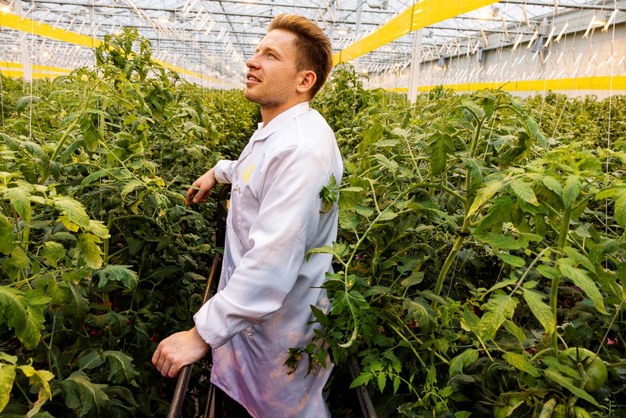
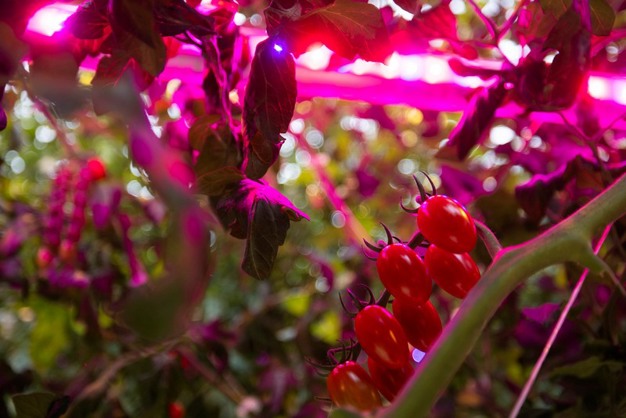
In recent years, Dirk has already set up projects with FoodVentures in Ukraine, Kazakhstan and Georgia. Partly because of this, they are also asked for their expertise in North America, Asia and the Middle East, where the need for local food production is high. Yet he expects the greatest growth to take place in Asia. "In China, people want to produce food in the city. These are often locations that are hot and logistically complicated. Even with challenges like energy and labor, greenhouses remain the most sustainable way of production." Projects are being developed on the western side of China, including in large cities like Chongqing. Beyond that, there is a lot of activity in Yunnan for floriculture and Shandong for traditional agriculture. And in the wider region, urbanization is continuing and the need for locally grown food is growing. "Middle incomes are rising, urbanization is high, there is a shortage of labor and a lack of space. All trends that tend towards indoor farming."
For more information:
Dirk Aleven
Food Ventures
dirk@foodventures.eu
